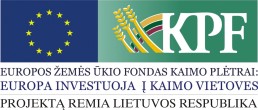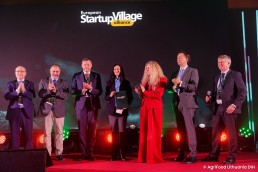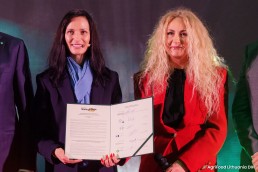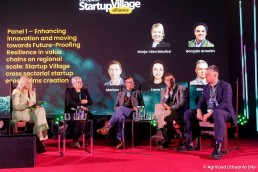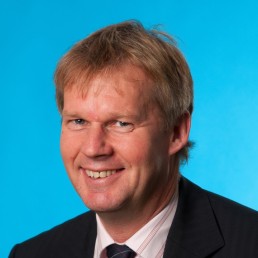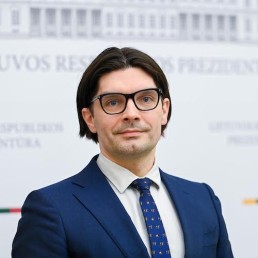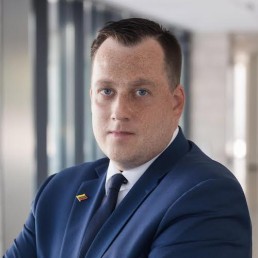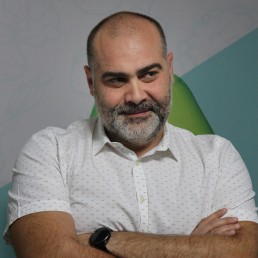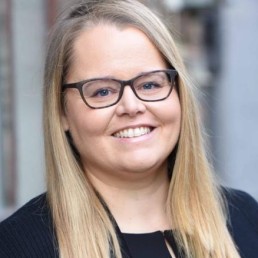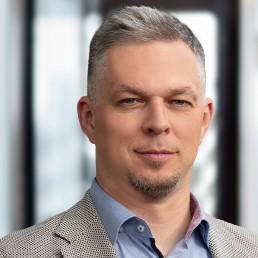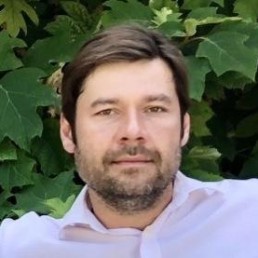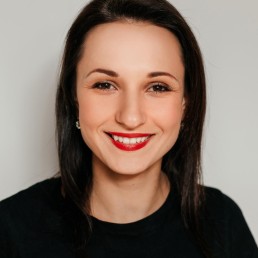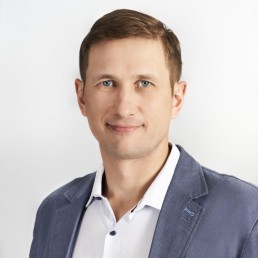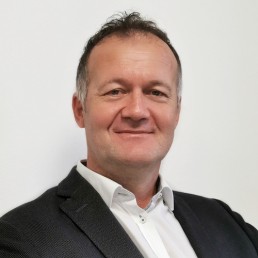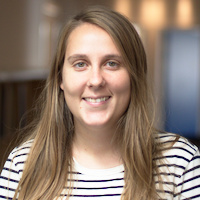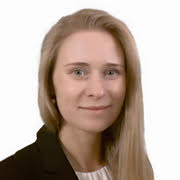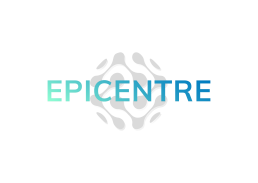
Startup Village Alliance
Mariya Gabriel
European Commissioner for Innovation, Research, Culture, Education and Youth.

Startup Village towards the twin green & digital transition: how innovative startup ecosystems could enable resilience and development in the regions.
We know how to support the creation of startups in cities. Doing this also in rural areas is quite new. But we believe it is the right thing to do. Not just to revitalise rural areas, but also to mobilise the innovation potential of rural areas for growth and wellbeing in the EU as a whole.
One of the obstacles we need to overcome is the belief that rural areas cannot be innovative places. Or to put it the other way around, that innovation is something that takes place only in cities and metropolitan areas. There is a lot of convincing to be done, for example by sharing success stories. But at the end of the day, it is also about having the right policies and programmes in place. The New European Innovation Agenda, adopted by the European Commission last July, includes a specific flagship action supporting innovation ecosystems to include innovation cohesion across Europe, and explicitly mentions Startup Village as an initiative that will contribute to this goal. This flagship will create connected regional innovation valleys across the EU, notably involving regions with a lower innovation performance. To make this happen, we will provide support for collaboration between at least one less innovative and another more innovative region[1]. We have dedicated funding of EUR 100 million from Horizon Europe and EUR 70 million from the Interregional Innovation Investments (I3) instrument under the European Regional Development Fund (ERDF).
The concept
The rural areas of the EU constitute an essential part of the European way of life. Taking into account all communes and municipalities of Europe with low population size or density, they are home to almost 140 million people, representing approximately 30% of its population and more than 80% of its land. However, recent social and economic developments, including as urbanization and globalization, are altering the function and character of rural regions, which are also impacted by population aging and decline. Vulnerability has been made more unknown by the COVID-19 pandemic and geopolitical issues with their unequal influence on European regions.
Concerns about the decline of rural infrastructure and service delivery, including access to healthcare, social services, and education, as well as postal and banking services, are widespread across Europe. Others express worry about dwindling work prospects, a potential decline in income in remote locations, or a lack of internet connectivity and accessible transportation. Rural communities may, however, use their vulnerabilities as opportunities in this ominous situation, and innovation can in fact play a significant facilitating role. For instance:
- A large number of brilliant individuals are relocating to rural regions in search of a higher quality of life;
- Talent acquisition and retention may be considered as a crucial building element of thriving rural innovation ecosystems.
The Startup Village idea might open up new work prospects in rural parts of Europe for both young people and older people. The new Long Term Vision for Rural Areas includes Startup Village as one of its flagships. However, initiative needs a solid base to advance. Without the complete participation of the rural stakeholders, it would not be conceivable.
- The economic development of the regions,
- The wider adoption of digital solutions,
- The involvement of young people and women,
- The achievement of the goals of the Green Deal,
- As well as a successful adaptation to changes in business and society, could all be ensured by targeting the development of Startup Village.
Additionally, putting the Startup Village concept into practice will encourage research and innovation in rural areas and contribute to the development of a more inventive entrepreneurship that would draw in more young and bright individuals. In order to maintain Europe’s competitiveness and to preserve the inhabitants’ health and wellbeing, innovation is crucial. Innovation is essential to achieving the main goals of the dual green and digital transformation because it molds markets, alters economies, and spurs significant improvements in the quality of public services. The use of cutting-edge technology and creative solutions has the potential to attract more businesspeople, particularly young ones with startups, to the areas. Collaboration is required to support funds and investments, build the infrastructure rural entrepreneurs need to succeed, assist them in developing new skills, provide chances for test-before-investment, and provide businesses the chance to test their ideas in real-world settings.
Therefore, it’s important to establish a startup environment with common ideals in rural places. Include local businesses, farmers, research organizations, local governmental officials, and last but not least, society. A network of networks called the European Startup Village alliance must be established for it.
- In a truly science-for-policy and evidence-for-policy context, the Startup Village Alliance is particularly designed to bring together key stakeholders who are prepared to share insights on obstacles and potentials for rural innovation and rural innovators.
- The alliance seeks to inspire the identification and development of building elements” of a common understanding of what a Startup Village could and should be, as well as of further guidance to local policy makers.
- By bringing together both science-based and community-based knowledge and experiences, the alliance hopes to pave the way for additional editions over the ensuing period.
- Expected Outcomes Significantly increased public dialogue regarding the critical role of StartUp Village concept in achieving a sustainable value chains in regional development and the measures necessary to achieve it.
Identified actions needed, with quantifiable outcomes, which are required to fulfill the StartUp Village Agenda targets. This will include:
- Highlighting existing solutions and honoring leaders in the transformation of regional development as well as calling for new actions at the national and EU levels by a range of stakeholders.
- A system of monitoring and review that will motivate new activities and results, facilitate the sharing of experiences, lessons, and information, and incorporate new impact measurements for StartUp Village concept. Manifesto for StartUp Village alliance.
The invitation to the StartUps
Startup Village Networking event invites start-ups from across Europe to participate in the event and boost their businesses by networking, increasing their visibility and using the funding opportunities! The event will attract a number of startups, corporates, as well as other organizations operating cross-sectoral. The event includes a dedicated presentation followed by a panel discussion, presenting multiple funding opportunities for SMEs provided by the European projects in the upcoming year or two. Throughout the event, startups will also have an exclusive opportunity to expand their business network and meet 1on1 with their potential business partners, providers and clients.
The main Entrance Hall will hold demonstrations dedicated to deep tech solutions that SMEs and StartUps are developing, so all the start-ups are invited to demonstrate their solutions. The main aim of these demonstrations is to discuss the impact of deep tech and robotics startups in creating innovative and sustainable startup ecosystems in the regions. The technologies can be demonstrated as they are, prototypes or video recordings and afterwards, the work in groups will be carried out to hear the participants’ feedback.
During the demonstrations
- Societal readiness of the product proposals will be assessed;
- Society concerns will be mapped, also considering citizens' rights (legal, ethical, data protection etc).
- The Companies will have honest feedback from potential customers and partners on the improvement and technology readiness
- Networking - Matchmaking and investor meet possibilities
- Readiness towards technology adaption;
- Relevant situations and roles and application scenarios will be explored.
In addition to many high-level sessions dedicated to discussing the European Start-up ecosystem and opportunities – Open calls and Funding opportunities for Startups will be presented during the event. The funding opportunities will deliver a strong combination of support instruments and tools for scaling up innovation, matchmaking, and demonstrating at large scale innovative market-oriented applications developed by outstanding SMEs that respond to the challenge of a more digitised and greener European Industry. Open calls will fund Startu-ups in all growth stages (early-stage, venture-funded (growth) stage and late stage) and the most market-oriented, scalable and high-impact projects throughout its innovation cycle, all with the goal of promoting their growth and development. The acceleration programs developed in the open-calls uniquely blend business services, access to corporate testbeds, the network and ecosystem building.
Nothing found.

Kristina Šermukšnytė-Alešiūnienė
Ieva Silina
Dr. Evelyn Reinmuth
Liene Briede
Mantas Vilys
Gonçalo Amorim
Alina Dolmate
Funding opportunitiesfor SMEs and Startups 21M euros
Our event will have a dedicated section where Open calls and Funding opportunities for Startups and SMEs will be presented. The presented projects (9) will deliver a strong combination of support instruments and tools for scaling up innovation, matchmaking, and demonstrating at large scale innovative market-oriented applications developed by outstanding SMEs that respond to the challenge of a more digitised and greener European Industry. Combined together, the total amount of support for SMEs and Startups distributed under the nine presented projects will reach almost 21M euros.
Open calls will fund Start-ups and SMEs in all growth stages (early-stage, venture-funded (growth) stage and late stage) and the most market-oriented, scalable and high-impact projects throughout their innovation cycle, all to promote their growth and development. The acceleration programs developed in the open-calls uniquely blend business services, access to corporate testbeds, the network and ecosystem building.
Lorem ipsum dolor sit amet, consectetur adipiscing elit. Sed at semper sem. Mauris at quam sit amet ante mollis pretium. Donec nec augue nec sapien feugiat porta. Nunc neque enim, vulputate vitae laoreet vel, fermentum at libero. Suspendisse interdum mattis diam, eu porta magna accumsan nec. Praesent tincidunt lacus ac odio condimentum eleifend. Mauris consequat, mauris maximus mattis pharetra, diam diam efficitur lorem, in vulputate quam risus sit amet orci. Nam volutpat sit amet ipsum id semper.
Agenda
09:00 - 09:30 Opening
Name Surname | Position
Main hall A
Grey hall (II floor)
09:00 - 09:05 Welcome speech
Viktorija Čmilytė-Nielsen | Speaker of the Seimas of the Republic of Lithuania
09:05 - 09:20 Opening presentation
Mariya Gabriel | Commissioner for Innovation, Research, Culture, Education and Youth
09:20 - 10:00 High level opening panel – StartUp Village towards the twin - green & digital - transition: how innovative startup ecosystems could enable resilience and development in the regions
Mariya Gabriel | Commissioner for Innovation, Research, Culture, Education and Youth
Simonas Gentvilas | Minister of Environment of the Republic of Lithuania
Jurgita Šiugždinienė | Minister of Education, Science and Sport of the Republic of Lithuania
Andy Zynga | CEO EIT FOOD
Kristina Šermukšnytė-Alešiūnienė | Director AgriFood Lithuania DIH, European Cluster Manager of the Year 2022
10:00 - 10:10 European Startup Village alliance members signing the Memorandum
Kristina Šermukšnytė-Alešiūnienė | Director AgriFood Lithuania DIH, European Cluster Manager of the Year 2022
Dr. Andy Zynga | CEO EIT Food
Dr. George Beers | Coordinator SmartAgriHubs, Wageningen University & Research
Vidmantas Janulevičius | President of the Lithuanian Confederation of Industrialists
Prof. Mladen Radišić | CEO at Foodscale Hub on behalf of AgriFood DIHs Network of Networks
Antonio Novo Guerrero | President European Clusters Alliance
10:10 - 10:50 High level remarks of European Startup Village Alliance on startup based innovation ecosystems challenges and opportunities for regional development
Dr. Andy Zynga | CEO EIT Food
Dr. George Beers | Coordinator SmartAgriHubs, Wageningen University & Research
Vidmantas Janulevičius | President of the Lithuanian Confederation of Industrialists
Antonio Novo Guerrero | President European Clusters Alliance
Prof. Mladen Radišić | CEO at Foodscale Hub on behalf of AgriFood DIHs Network of Networks
Dr. Evelyn Reinmuth | Coordinator of the European Startup Village Hub of the University Alliances, Head of Bioeconomy Office University of Hohenheim
10:50 - 11:15 Keynote presentation
Augustas Alešiūnas | AGTech Investor, EIT Food core partner, startup ecosystem expert
“Regions beat the capitals. Can they?”
11:15 - 11:35 Coffee break
11:35 - 12:55 Panel 1 – Enhancing innovation and moving towards Future-Proofing Resilience in value chains on regional scale: Startup Village cross sectorial startup ecosystems creation
Marja-Liisa Meurice | Director of EIT Food CLC North-East
Gonçalo Amorim | CEO and Founder of BGI, Non-executive director of the CoLAB Food4Sustainability
Mantas Vilys | Director at Lithuanian Innovation Center, representative of the EEN in Lithuania, E-DIH Lithuania coordinator
Liene Briede | European Innovation Council board member, Latvian Startup Association “Startin.LV” board member, Director of Science and Innovation department at Riga Technical University
Mindaugas Snarskis | CEO Vikonda Group
12:55 - 14:20 Lunch break
14:20 - 15:25 Panel 2 - Regional development challenges and opportunities in the Baltic states
14:20 – 14:30 Intervention on the topic:
Gytis Žakevičius | Adviser to the Minister, Ministry of Finance of the Republic of Lithuania
Ieva Silina | Advisor to the Minister on Innovation and Digitalisation, Ministry of Economics of the Republic of Latvia
Dr. Julija Kiršienė | Vice-Rector for Research at Vytautas Magnus University
Vaidas Augustinavičius | Adviser to the President, Economic and Social Policy Group
Zane Silina I Project Manager at Latvian Rural Forum
15:25 - 17:10 Startup Village: Towards transformative solutions for sustainable future: expectations and opportunities for collaboration and funding
Intervention on the topic: fire-starter “How to make the most out of “open calls” for startups?
Open calls presentations
SUAVE Orsolya Szaplonczay | Managing Director at Innoskart DIH
EPICENTRE Laura Uturyte | Project Manager at LITMEA
HIGHFIVE Thomas Gitsoudis | Senior Innovation Officer at AgriFood Lithuania
dRural Prof. Mladen Radišić | CEO at Foodscale Hub
ICAERUS Prof. Mladen Radišić | CEO at Foodscale Hub
TITAN Prof. Mladen Radišić | CEO at Foodscale Hub
Eco-Ready Prof. Mladen Radišić | CEO at Foodscale Hub
InCiTiS-FOOD Prof. Mladen Radišić | CEO at Foodscale Hub
Panel discussion
Alina Dolmate | Innovation Ecosystem Development Unit at Riga Technical University Science and Innovation Centre, EIT Food Hub Manager in Latvia
Daniel Copot | Director of Agrifood DIH
Orsolya Szaplonczay | Managing Director at Innoskart DIH
Prof. Mladen Radišić | CEO at Foodscale Hub
Kasparas Jurgelionis | Managing Partner at Iron Wolf Capital
17:10 - 17:20 Concluding session
9:00-13:00 Robot exhibition session
„What is the impact of deep tech and robotics startups in creating innovative and sustainable startups ecosystems in the regions“
11:00-13:00 CoCreation Workshop: „How to prepare your robot for a greater societalacceptance!“
Mette Marie Simonsen | Project Manager at Danish Board of Technology
- 11:00-11:05 Welcome to the CoCreation workshop
- 11:05-11:25 Short introduction and process for the CoCreation workshop
- 11:25-12:50 CoCreation workshop
- 12:50-13:00 Round off and thank you for the attending
13:00-14:15 Lunch Break
14:15-16:00 Robot exhibition session
„What is the impact of deep tech and robotics startups in creating innovative and sustainable startups ecosystems in the regions“
When joining the Co-creation workshop, you’ll get the opportunity to examine important aspects of your robotic application from a societal perspective. At the workshop you and associated developers get the chance to test your robotic solutions with the future end users of your solutions.
Be part of the co-creation workshop and become an important voice in the future development of robotics aiming for an increased societal acceptance and broader adaptation when implementing new robotics solutions!
Register now!
000 d. 00 h. 00 m. 00 s.

















